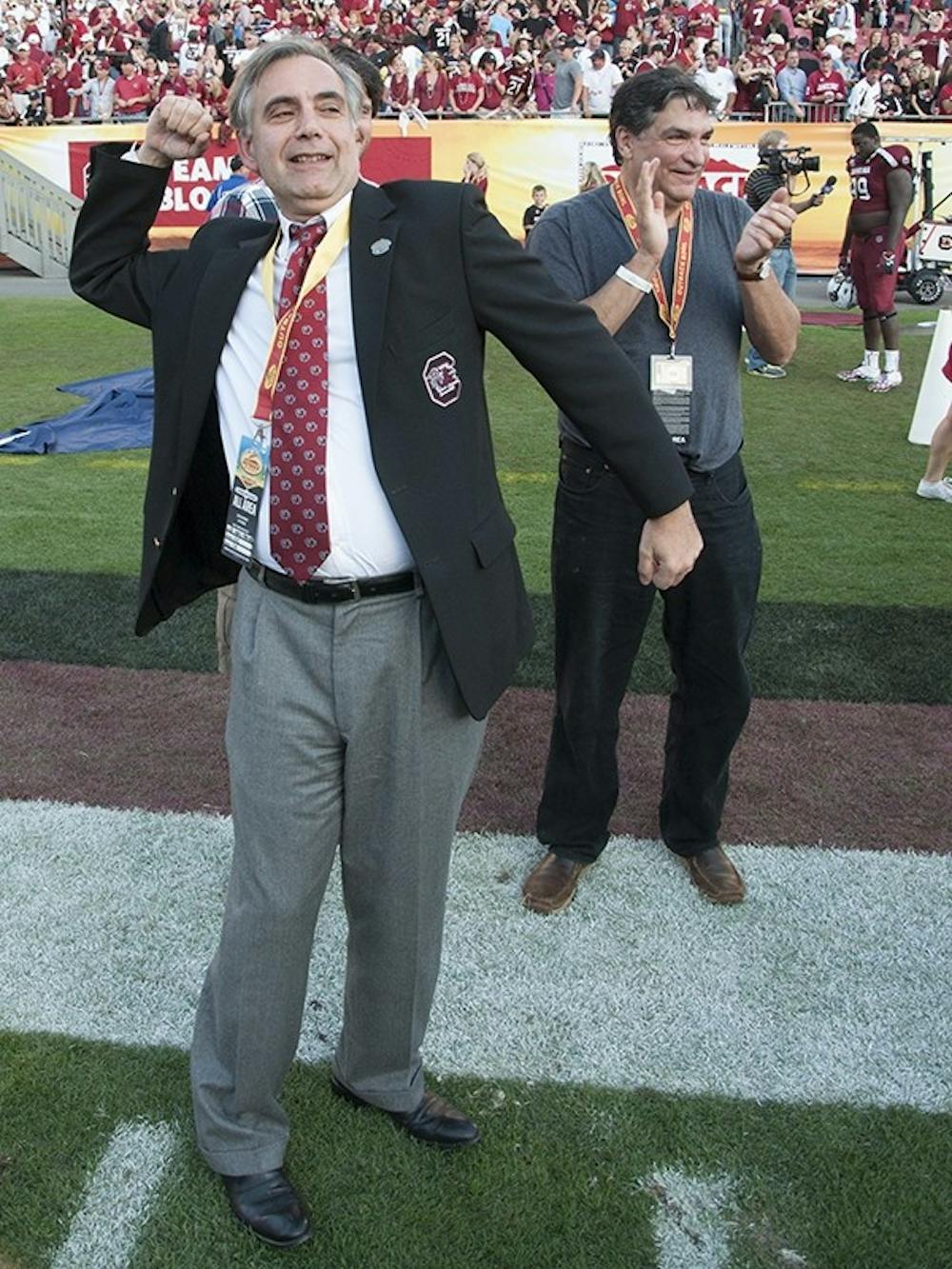USC president acknowledges growing mistrust of NCAA, need for change in system
When USC Harris Pastides first heard news of the National Collegiate Athletic Association’s recent misconduct, he was “troubled.” He began to question if the organization’s recent investigation into USC had been handled properly.
“It made me want to fight back more,” Pastides said. “It made me question whether we were a little too cooperative or if we should have fought more.”
Though Pastides was disconcerted with the NCAA’s admission that its enforcement staff improperly obtained information in its investigation of the University of Miami, he, as a member of the NCAA’s executive committee, was included in the unanimous vote of confidence to NCAA President Mark Emmert.
The NCAA could not use certain findings in the high-profile case against Miami because investigators used subpoena power to obtain information, a means the organization does not have. Reports surfaced in 2011 that Miami football players were given gifts and extra benefits from Nevin Shapiro, who is now serving jail time for an alleged Ponzi scheme. Miami received its notice of allegations from the NCAA last week.
Pastides said Emmert is ultimately accountable for the NCAA’s failings in this circumstance, but he supports his leadership because Emmert was upfront with the committee in immediately disclosing the NCAA’s wrongdoing.
Emmert’s action in removing the rogue investigators from power and calling for an external review of the Miami case, and previous NCAA infractions cases also helped the committee reaffirm its trust in him.
“He does have responsibility, of course, but I know what it’s like to have responsibility for thousands of other people,” Pastides said. “The challenge is when something goes wrong, how do you respond?”
Despite his support of Emmert, Pastides acknowledged the growing mistrust in Emmert and the NCAA, as well as the need for change in the system. In October, the NCAA board of directors adopted a new enforcement model that will change how the enforcement division of the NCAA operates.
Though steps have been taken to rebuild the shaken trust in the NCAA, like removing some of the people at fault, conducting external reviews and not using any evidence improperly obtained, Pastides said time will tell if those actions will work in rebuilding the NCAA’s image.
In having the responsibility of both promoting collegiate athletics and serving as the enforcement agency for when collegiate athletics programs break the rules, the NCAA’s model doesn’t have precedent, Pastides said. A system with more accountability, more monitoring of the enforcement staff and more transparency of the “fact finding” could help solve the conflicting interests, he said.
“It’s inherently difficult, and I think that’s what led to some of the problems,” Pastides said. “Will that not happen again? That’s a very legitimate question.”

